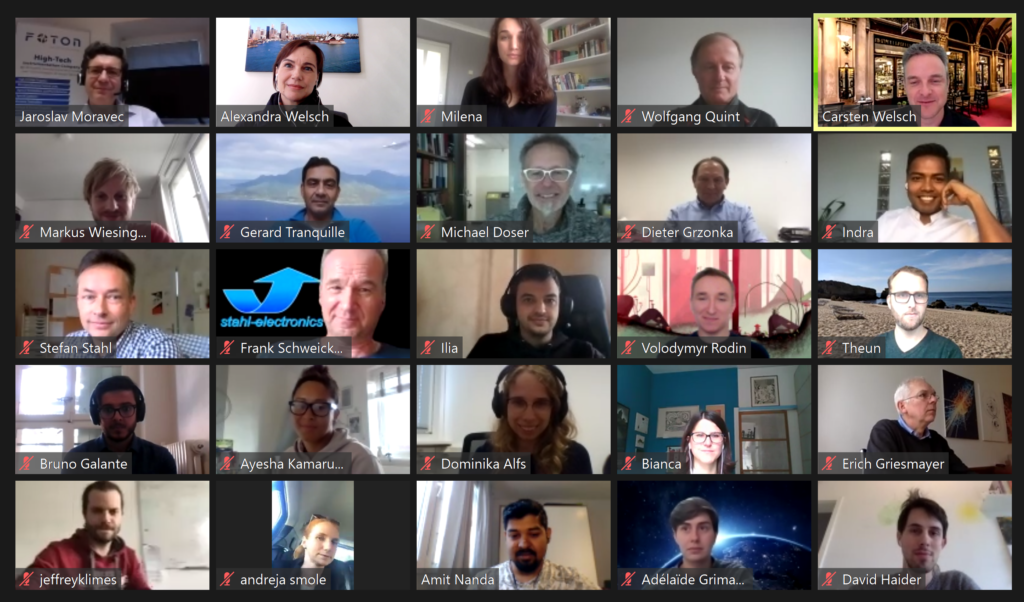
In January 2017 the 4M€ EU-funded Accelerators Validating Antimatter (AVA) network, coordinated by the Cockcroft Institute/University of Liverpool, was launched with a Kick-off Meeting in Liverpool where representatives of all partner institutions were present. They had put together a very ambitious and interdisciplinary training programme for 16 research Fellows to allow them to work at the forefront of science, participate in numerous training events and benefit from networking and various collaboration opportunities within the AVA network.
Nearly four years on, with the project coming to a close in early 2021, the Fellows were given an opportunity to showcase their research results and achievements during the final Supervisory Board (SB) meeting which took place in an online setting on 14th October 2020.
CI member and AVA Coordinator Professor Carsten P Welsch started the meeting by giving a presentation about the overall project achievements. He mentioned how the new storage ring ELENA at CERN had opened fascinating opportunities for AVA and the low energy antimatter physics community in general. He summarized the many events that the network had organized over the last four years, including workshops, schools and a large scale Symposium as an international showcase event. He also talked about the many outreach activities that the project has produced, including the AVA film and events such as Marie Curie Day and the very successful Physics of Star Wars events. The network also had the pleasure to welcome a number of new partner organisations since the project start and this was as a good indicator that there is strong interest from a much wider community. All research projects within the network have produced good results and these have been disseminated in a large number of journal and conference publications.
Following his talk, each Fellow presented a summary of their respective project to international experts from across the entire consortium. Their presentations included project results, highlighting research outcomes, interdisciplinary training and outreach activities. The latter presented AVA-related research to the wider public in Europe and other parts of the world. This showed a number of exciting ways how the Fellows managed to inspire the next generation of scientists.
The meeting was a perfect opportunity for the Fellows to reflect on their own development and overall progression during their time in the network. The SB commended the Fellows for their research results, large number of scientific publications and invited talks, as well as their broad and interdisciplinary training. It also highlighted the excellent spirit of collaboration in the network. Given the magnitude of the COVID crisis, the SB pointed out that it was a testament to the good risk management and excellent mitigation strategies put in place by partners that only minor changes to project objectives were required and that congratulated to Fellows that the project would fully meet its objectives.
Professor Welsch said: “I am very grateful to our fantastic project partners for their support throughout the project lifetime, in particular the AVA Steering Committee for their excellent work, and our Fellows for their commitment to excellence in research and training. A special thank you goes to my Project T.E.A.M. for their help in delivering the project to highest standards.”
The AVA project has had a global impact and is now as an established brand. All partners agreed that AVA shall now continue to serve as a platform for future joint research activities and possibly also R&D projects. The collaboration will continue its communication activities, including the website and quarterly newsletter and also has plans to organize additional workshops and events for the scientific community.
This project has received funding from the European Union’s Horizon 2020 research and innovation programme under the Marie Skłodowska-Curie grant agreement No 721559.

